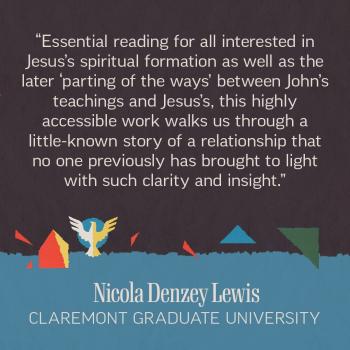I am delighted to be part of the Patheos book club about Eben Alexander’s book, Proof of Heaven: A Neurosurgeon’s Journey into the Afterlife. It is an account of the author’s experience while in a coma. It may be appropriate to call it a “near death experience.” But that very term may introduce assumptions that deserve investigation. Mystics who were not in comas have claimed to have similar experiences. And so ought the experience be treated primarily in terms of how close to death or otherwise the one having the experience happens to have been?
The book has already been the subject of a great deal of publicity, which has brought skeptical claims and counter-claims into the discussion. I have no reason to doubt that Dr. Alexander’s description of his experience is true. And I, like everyone other than him, cannot verify his claims about his experience.
And so the interesting thing to discuss is the interpretation of his experiences.
I remember how adamantly I rejected the suggestion that my own “born again” experience might be “psychological.” Both the offering of that suggestion as a supposed criticism, and my rejection of it, reflect the mind-body dualism that many presuppose. And I think that Alexander presupposes it, when he speaks of his soul having journeyed elsewhere apart from his body. But it seems to me that his experience – which at times he expresses using terminology derived from Hinduism, such as Om – is every bit as compatible with other views, such as that reality itself is fundamentally consciousness. If everything is ultimately one – as many mystics as well as physicists claim – then that is also true of body, mind, and consciousness.
“Near death experiences” are unlikely to ever provide what skeptics will consider adequate proof of life after death. But for me the interesting thing is the experience. We exist in a universe in which people have such experiences, and that in itself is remarkable, more so than any particular account of the mechanisms at work or the layers of reality that might be fathomed. If Alexander’s experience had nothing to do with the function of his brain, then our current understanding of the relationship between brain and memory must be completely wrong. But this is why I have stopped bristling at the use of the term “psychological.” All experience is psychological. And so for me, even if the experience did not involve an immaterial soul leaving a material body, that doesn’t make it less striking or less worth considering. The intuition that, at its deepest level, reality is not matter but love is one that may sound like New Age nonsense. But does it sound that way because it genuinely makes no sense, or because we have become accustomed to try to reduce love to chemistry? If love is about relationship, then there are views of reality which are taken very seriously by philosophers and physicists, and which view relationships and events rather than “things” as the most fundamental.
A recent post on the blog Only A Game discussed the relationship of Process Thought to the “hard problem” of consciousness. (See also my review of Keith Ward’s book More Than Matter.) Alexander’s book also discusses this “hard problem” which stems from taking the one thing that we can be sure of – consciousness – and making it a problem on the basis of an approach to the universe as “matter” which has proven very useful in describing and studying certain aspects of what exists, but does not necessarily get at the fundamental underlying nature of things.
In the end, I am not sure how to best interpret Dr. Alexander’s experience. I am definitely committed to being extremely cautious, since, if science may not have all the answers, that is not a justification for embracing “alternatives” uncritically. But I do think he is right to emphasize that it is a misguided approach to reality which regards human experience, including mystical experiences and including love, as things to be reduced to physical processes, rather than as clues to the meaning and nature of reality itself.
Alexander has created a website about his experiences and those of others who’ve had NDEs, which may be of interest.
Have blog readers had these kinds of experiences? I know that even skeptics and atheists have had experiences of things that are normally considered paranormal, and interpret them in different ways. To use a phrase from the book (p.146), do you give yourself permission to believe your own eyes and your own experiences? Or do you rule out the possibility that some experiences reflect reality, because of a worldview that you adhere to which rules out the possibility that such experiences are veridical? If the latter, does that stance make sense to you, given that the experience, and the deduction about the nature of the world, are all products of and then funneled through human consciousness? Do you believe that we should we trust some of our reasoning and experiences, but not others? If so, why?
I hope that readers interested in this topic will take a look at Alexander’s book, but that even those who’ve never read it will take this opportunity to discuss the broader topic of the nature of existence, experience, and knowledge.


















